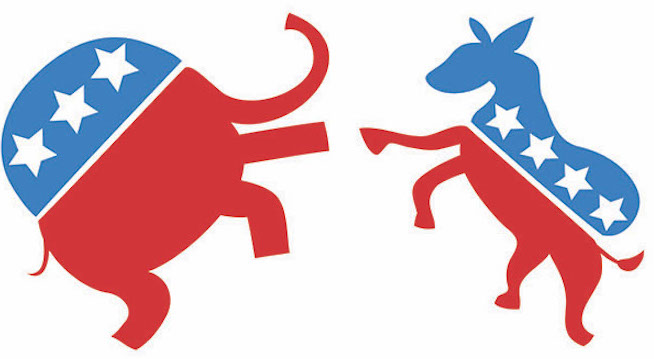Now, more than ever, political tensions in the US are high.
And politics are intrinsically tied to law school. In fact, in 2018, a Kaplan Test Prep survey found that 87% of admissions officers said they believed the current political climate played a big part in the increased number of applications.
As the nation prepares for a presidential election in a few months, many law school applicants may be wondering how politics can play a role in their law school applications.
Gabriel Kuris, the founder of Top Law Coach and a contributor at US News, recently wrote about how law school applicants can talk about their political views on law school applications.
“Political passions have deep roots in the U.S., and there’s no reason to feel ashamed about them. Indeed, many dreams of graduating law school are rooted in fiercely held beliefs about the rights, obligations and spirit of American citizenship,” Kuris writes. “Law school applicants shouldn’t feel the need to hide the political or religious beliefs, affiliations and activities that mean so much to them.”
SHOW DON’T TELL
When it comes to discussing your political views on your law school application, Kuris says actions will speak louder than words.
“Successful law school applicants show themselves as people who roll up their sleeves and get to work,” Kuris writes. “Whether that means starting a movement, joining an established organization, working hard at a job or serving their community in thankless ways, they are doers and joiners and helpers.”
To that note, Kuris recommends applicants to list their activism and advocacy work on their law school resume in a manner that demonstrates action over simply listing words.
“…focus more on the work you did than the causes you identified with,” Kuris writes. “Law schools have no shortage of ideas – what they need is people who take initiative and get things done.”
BE CAREFUL ABOUT LANGUAGE
It’s important to remember that people may hold differing opinions from you.
And Kuris says this is even more important when it comes to how you discuss your views in your applications.
“Shorthand, sarcasm and self-righteous language that may feel safe among peers may alienate those of a different mind,” Kuris writes. “Even if admissions officers personally agree with you, they may view your language as unprofessional. No one wants a lawyer, or a law school classmate, with a runaway mouth.”
REVIEW YOUR INTERNET PRESENCE
What goes on the internet tends to stay on the internet.
Kuris says law school admissions offices will look up applicants online and browse their social media accounts when considering an application.
“Before submitting your application, review your privacy settings on any accounts you are concerned about and consider deleting content that might portray you in an unflattering light,” Kuris writes. “No need to tone down your personality, just try to stay civil and professional.”
Sources: US News, Kaplan Test Prep


Questions about this article? Email us or leave a comment below.